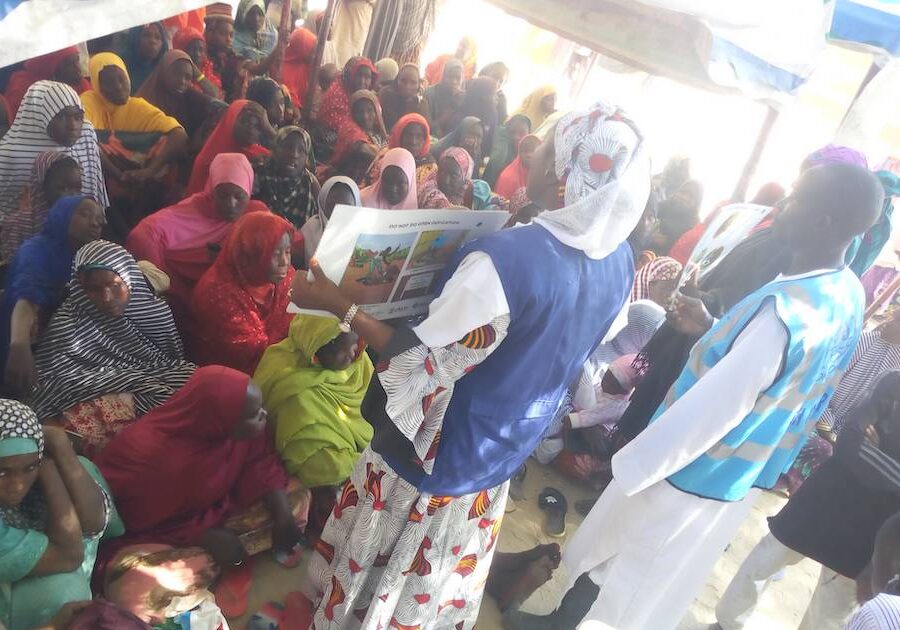- Expertise
- About us
-
Our Purpose
Find out more about CTG’s origins and vision
-
Our Leadership & Management
Meet the team driving CTG’s vision around the globe in conflict settings
-
Our Policies
We adhere to the highest levels of ethical management and corporate governance
-
Contact CTG
Get in touch to find out more about our services
-
CTG’s Culture
At CTG we hire EPIC people
-
- Impact
-
UN Recognition
Global recognition for our social good efforts
-
Sustainable Development Goals
Our commitment to advancing the SDGs
-
Shared Value
Solving social challenges with business solutions
-
Female First
Increasing female representation in humanitarian jobs
-
Putting People First
Leaving a lasting impact on the communities where we work
-
Committed To Good Summit
Accelerating development progress through localised collaboration
-
- Engage
- Work with us
-
Jobs
Find your next post with CTG and sign up to our jobs portal
-
Tayo
CTG’s remote workforce management software
-
Duty Of Care
Protecting our staff and minimising risk in conflict-affected areas
-
Internships
CTG’s Women in Aid: Internship & Mentorship Programme
-
Staff Support
CTG Wellbeing, CTG Learning & CTG Helpdesk
-
Nigeria Aishatu Saleh Gimba


I was born, raised and currently stay in Maiduguri Borno State, Nigeria. I had the best childhood growing up as a Babur girl. It was fun and lively. As a child, I attended Maiduguri Primary, went on to Monguno LGA secondary and ended my tertiary education at the University of Maiduguri where I graduated with a degree in Agricultural and Environmental Resources Engineering.
My priority is to improve the living conditions during displacement of refugees while seeking and advocating for durable solutions to end the camp life.
My Day as a Site Assistant
I currently work as a Site Assistant in the Camp Coordination and Camp Management (CCCM) unit. My priority is to improve the living conditions during displacement of refugees while seeking and advocating for durable solutions to end the camp life. I also ensure that key services fill critical gaps and advocate for targeted and immediate delivery of services through community participation. Community participation from the displaced is key in expressing their views and needs and identifying possible collective action that contributes to solutions. Another key part of my job is ensuring that the camp’s physical safety and security mitigate protection and health risks through the care and maintenance of camp facilities.
The Good and The Bad
When working in the humanitarian field, you will encounter various situations. Good and bad. There are so many moments that have made me feel good and proud to be doing what I do. I can think back to when we were able to help camp members almost immediately with food assistance when they were in need. The joy on their faces makes it all worthwhile. There was an occasion when a camp member had an accident and broke her leg. It was not carefully taken care of resulting in her leg getting infected. A referral was made immediately from the team to have her taken to the hospital for treatment. After a few weeks, she was able to walk again, and she was thankful for our swift response.
However, you will also experience sad situations that leave you feeling helpless. One that really stuck with me was encountering a mother at the campsite that gave birth to a baby girl. The baby was born with an abnormal growth on her back. The team and I referred the mother to the University of Maiduguri Teaching Hospital but after 40 days, the baby did not make it. This broke my heart.
It requires you to speak up, be a critical thinker, have the necessary patience, good communication skills and most importantly, to be selfless and want to help those who need it most.
The Challenges Faced
We face many challenges in this line of work especially when it comes to referrals. It is quite a slow process, yet it is so crucial for patients to get seen as soon as they are referred. We also experience a lack of strong community participation. This could be due to a language barrier. That’s why it is important to have strong leadership skills if you want to do this kind of work. It requires you to speak up, be a critical thinker, have the necessary patience, good communication skills and most importantly, to be selfless and want to help those who need it most.
Making a Difference in the Lives of Others
Being a Site Assistant in the Camp Coordination and Camp Management unit for the past five years has been the most rewarding job. When it comes to the displaced community, they are often left feeling helpless, shattered and discouraged about life. Gradually through sensitization, community participation and engagement, the community are able to get back on their feet. We prioritise getting feedback from the community so we can continue to improve by helping them. Relevant awareness is spread through radio station programmes so people are informed and educated. We also have a women’s participation programme that encourages and empowers women by providing them with business skills to help them in their everyday lives. This makes me feel like we are truly making a difference in the lives of others, one step at a time, despite the challenges faced.

